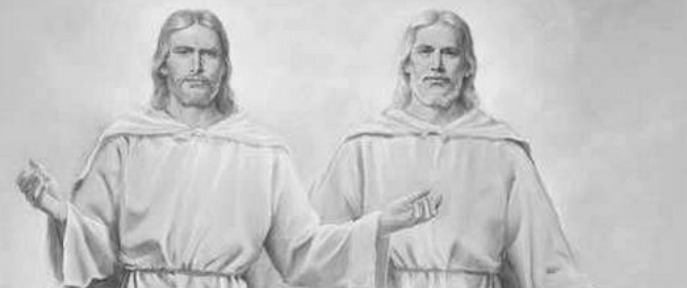Dear Gramps,
I have a question that has bothered me for a while, and it could be because I was inactive during primary and missed some basic gospel foundation. In the Book of Mormon, whenever it refers to Lord, does it mean Jesus Christ or Heavenly Father? Whenever I have personal prayer, I have addressed to Lord, yet if I am mistaken, I need to fix it. I want to be able to have a clear understanding when I study the scriptures, yet I become very confused when I wonder which member of the Godhead they are refering to.
Thank you for your site, it has helped me catch up to the rest of my peers when I returned to church.
Alex
Dear Alex,
When Jesus Christ was on the earth, He taught His disciples that they as well as each of us should pray to Our Father in Heaven. This is found in Matthew 6: “9 After this manner therefore pray ye: Our Father which are in heaven, hallowed be thy name.” Later we are instructed by Jesus Christ that we are to pray to the Father in His name. We read in John 14: “13 And whatsoever ye shall ask (pray for) in my (meaning Christ’s) name, that will I do, that the Father may be glorified in the Son. 14 If ye shall ask any thing in my name, I will do it.” This is why we begin our prayers by addressing it to our Father in Heaven and we should give our thanks to and ask for blessings to Our Father in Heaven. We close our prayers in the name of Jesus Christ.
Normally the term “Lord” refers to God the Son. In the Old Testament He was known as Jehovah and as Jesus Christ in the New Testament. When we see “LORD” (all in capital letters) it is referring to God the Father.
Normally the only time that God the Father has spoken directly is when He has introduced His Son. An example of this is at Jesus’ baptism. We read in the 3rd chapter of Luke that when Jesus was baptized by John the Baptist: “22 And the Holy Ghost descended in a bodily shape like a dove upon him, and a voice came from heaven which said, Thou are my beloved Son; in thee I am well pleased.” Another example is when God the Father and God the Son appeared to the prophet Joseph Smith. This is recorded in Joseph Smith History, Chapter 1: “17….One of them spake unto me, calling me by name and said, pointing to the other—This is My Beloved Son, Hear Him!”
In the scriptures it is God the Son speaking to the prophets even though it might sound as if it is God the Father. God the Father has given authority to His Son to represent Him in all His dealings with the human family. This is called Divine Investiture. In a statement released by the First Presidency and Twelve Apostles in June of 1916, they stated: “A fourth reason for applying the title “Father” to Jesus Christ is found in the fact that in all His dealings with the human family Jesus the Son has represented and yet represents Elohim His Father in power and authority. This is true of Christ in His preexistent, antemortal, or unembodied state, in the which He was known as Jehovah; also during His embodiment in the flesh; and during His labors as a disembodied spirit in the realm of the dead; and since that period in His resurrected state. To the Jews He said, “I and my Father are one” (John 10:30; see also John 17:11, 22); yet He declared, “My Father is greater than I” (John 14:28), and further, “I am come in my Father’s name” (John 5:43; see also John 10:25). The same truth was declared by Christ Himself to the Nephites (see 3 Ne. 20:35; 3 Ne. 28:10), and has been reaffirmed by revelation in the present dispensation (D&C 50:43). Thus the Father placed His name upon the Son; and Jesus Christ spoke and ministered in and through the Father’s name; and so far as power, authority, and godship are concerned His words and acts were and are those of the Father.”
Gramps







